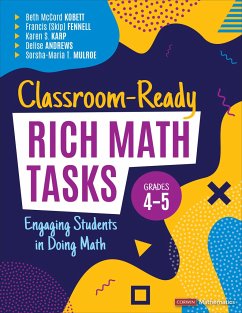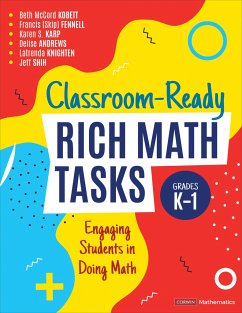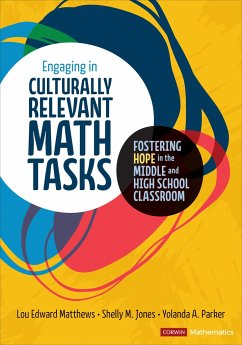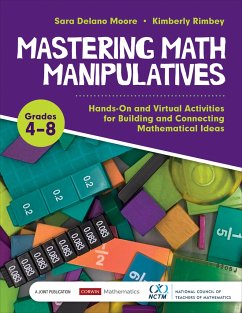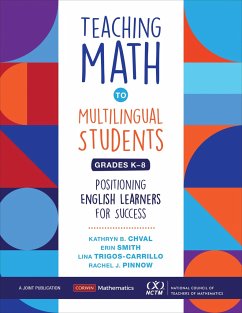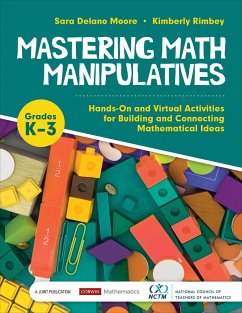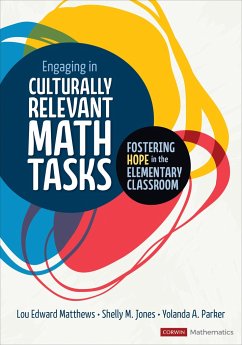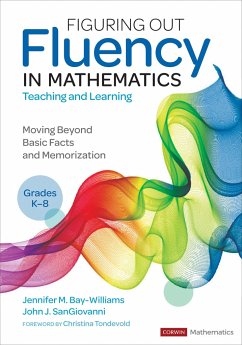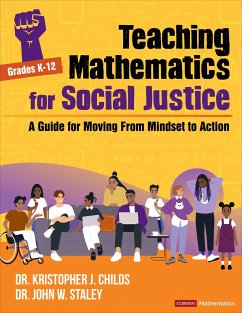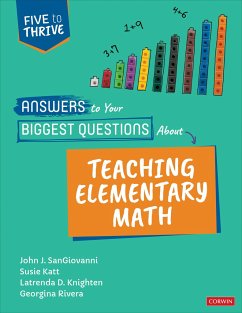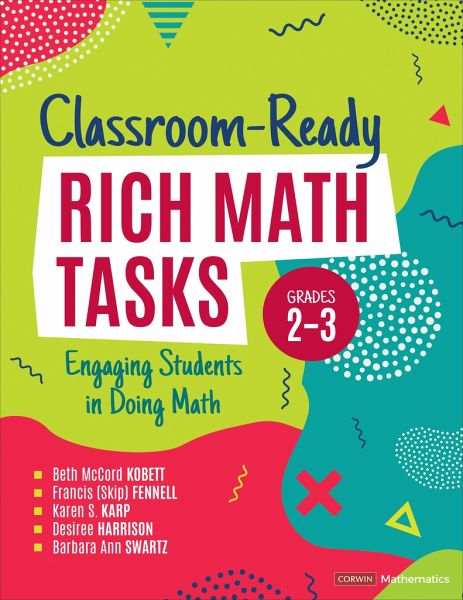
Classroom-Ready Rich Math Tasks, Grades 2-3
Engaging Students in Doing Math
Versandkostenfrei!
Versandfertig in über 4 Wochen
37,99 €
inkl. MwSt.

PAYBACK Punkte
19 °P sammeln!
Detailed plans for helping elementary students experience deep mathematical learning The mathematical tasks in this guide will challenge your youngest students to do deep problem-based learning. These ready-to-implement tasks connect concepts, skills, and practices and encourage students to reason, problem-solve, discuss, explore, justify, monitor their own thinking, and connect the mathematics they know to new situations. In other words, these tasks allow students to truly do mathematics! Written with a strengths-based lens, this guide includes: ¿ Complete task-based lessons, referencing m...
Detailed plans for helping elementary students experience deep mathematical learning The mathematical tasks in this guide will challenge your youngest students to do deep problem-based learning. These ready-to-implement tasks connect concepts, skills, and practices and encourage students to reason, problem-solve, discuss, explore, justify, monitor their own thinking, and connect the mathematics they know to new situations. In other words, these tasks allow students to truly do mathematics! Written with a strengths-based lens, this guide includes: ¿ Complete task-based lessons, referencing mathematics standards and practices, vocabulary, and materials ¿ Downloadable planning tools, student resource pages, and thoughtful questions, and formative assessment prompts ¿ Guidance on preparing, launching, facilitating, and reflecting on each task ¿ Notes on access and equity, focusing on students' strengths, productive struggle, and distance or alternative learning environments



